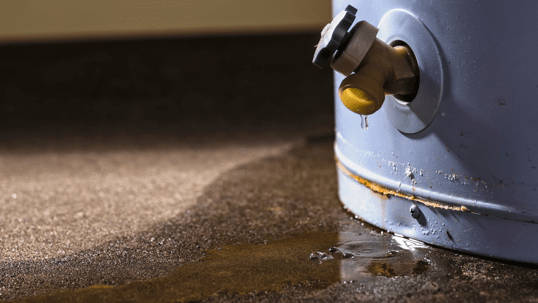Are you noticing that your water heater relief valve is leaking? This is a problem that shouldn't be ignored or taken lightly. A water heater relief valve is designed to release excess pressure in your water heater tank, so if it's leaking, it means that something isn't working like it should. In this blog post, we'll dive into what can cause a water heater relief valve to leak and how to address the issue.
What is a Water Heater Relief Valve?
First things first, let's talk about what a water heater relief valve is. This valve is a safety feature installed on water heater tanks to prevent an explosion or other safety hazards. The valve is designed to release excess pressure caused by overheating or buildup of pressure inside the tank. If the pressure in the tank goes beyond the limit set by the valve, the valve opens and releases water until the pressure returns to a safe level.
Common Causes of a Leaking Water Heater Relief Valve
There are several reasons why a water heater relief valve could be leaking. The most common are mineral buildup, high water pressure, and a faulty valve. Over time, minerals can accumulate in the bottom of the water heater tank, causing the valve to malfunction or fail. Additionally, high water pressure can cause the valve to continuously release water, resulting in a leak. A faulty valve could also be the cause of the leak, leaving it unable to properly release excess pressure or closing completely.
Troubleshooting a Leaking Water Heater Relief Valve
If you notice that your water heater relief valve is leaking, it's crucial that you address the issue as soon as possible. Here are some steps you can take to troubleshoot the problem:
- Check the water pressure: Use a water pressure gauge to ensure that your home's water pressure is within the normal range.
- Inspect the valve: Look for any signs of corrosion, leaks, or damage on the valve. If the valve is damaged, it may need to be replaced.
- Flush the tank: If you suspect mineral buildup is causing the issue, try flushing your water heater tank to remove the buildup.
- Replace the valve: If none of the above solutions solve the problem, the valve may need to be replaced. This is best left to a professional plumber, as it requires shutting off the water supply and draining the tank.
Why You Shouldn't Ignore a Leaking Water Heater Relief Valve
A leaking water heater relief valve is not something to be ignored. If left unchecked, it could lead to more serious problems, including damage to your home, injury, or even death. Without a relief valve, a water heater tank could potentially rupture and cause an explosion. Additionally, a leaking valve could be a sign of other issues in your water heater tank that need to be addressed.
Conclusion
If you are noticing that your water heater relief valve is leaking, it's important to take immediate action. Don't try to fix it yourself. Always consult with a professional plumber who can diagnose the issue and determine the best course of action to take. Remember, safety should always come first when dealing with your home's plumbing system.

